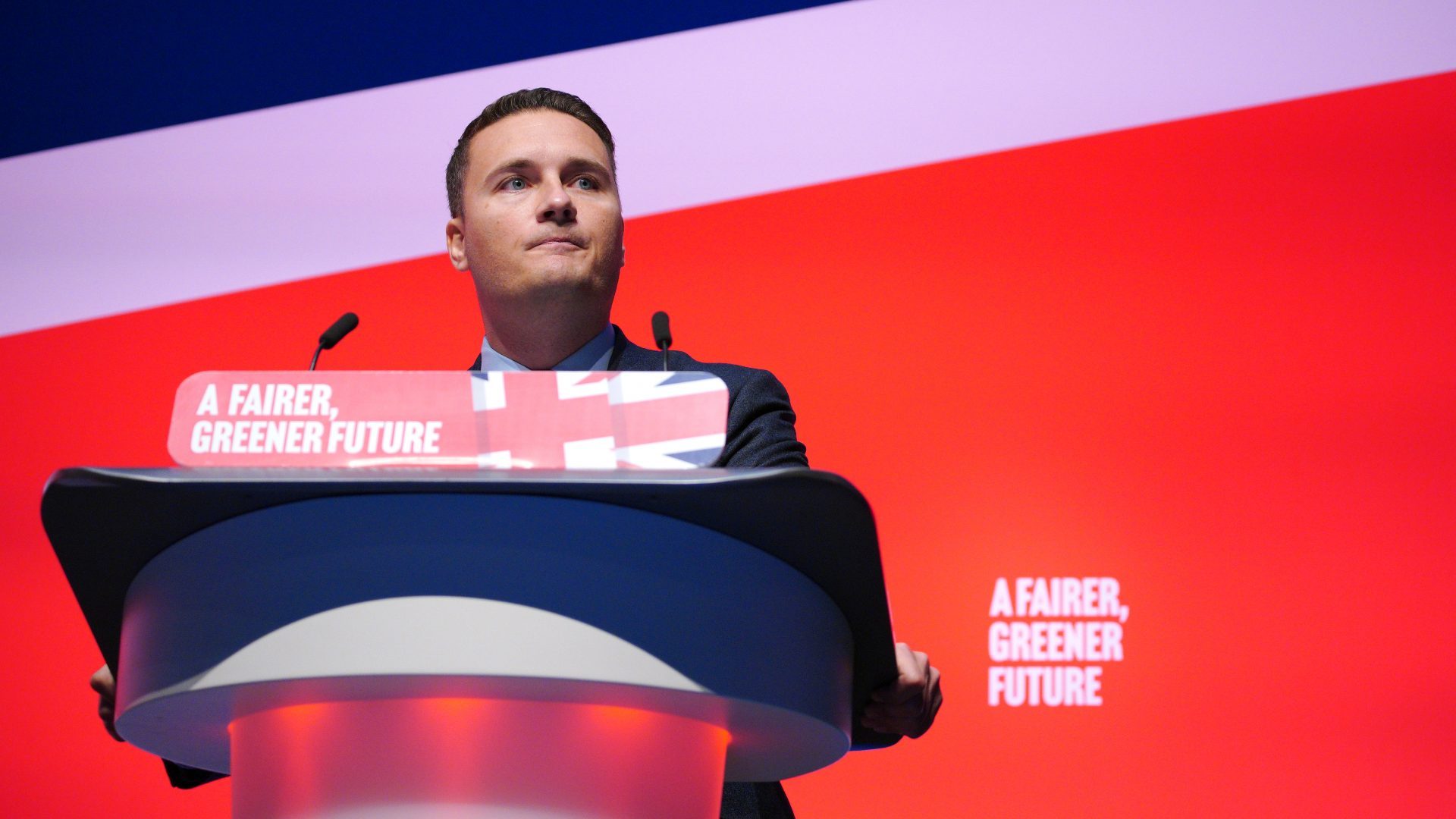In the spring, Mandrake got in touch with Wes Streeting, the shadow health secretary, to suggest that he start asking questions in the Commons about Genomics England. NHS professionals had come to me complaining about what a drain on precious resources this “white elephant” had become. “Thanks, I’ll start digging,” Streeting assured me.
Streeting’s shovel must have broken, as he never asked a single question. Yet the full scale of the chaos I first revealed about Genomics England is now becoming all too clear. And 14 years and at least a billion pounds of taxpayers’ money on from its inception, all the talk of it bringing exciting medical breakthroughs has come to nothing.
After stonewalling for 15 months – the information commissioner has described the lack of transparency as “inexcusable” – Genomics England was compelled to start accounting for itself. Papers that were released showed it had a dysfunctional IT system, functionaries who failed to work collaboratively with NHS staff – to the extent they started swearing at each other on internal messaging platforms – and, in the area of IT alone, it was at one point costing taxpayers £330,000 a month to retain developers to try to fix the problems. My sources in the NHS say this is “just the tip of the iceberg in the sheer scale of waste, incompetence and cronyism”.
The story began in 2011 when David Cameron, as prime minister, summoned the life sciences champion, Prof Sir John Bell, to No 10 to give a talk on genetics and its value to the NHS. With Bell reckoning it would set the taxpayer back by no more than £50m – he later admitted he “cooked up the numbers” – a company called Genomics England was set up in 2013 with Bell as a non-executive director. The plan was for the company to be owned by the Department of Health because it was simply “too groundbreaking” a project for the NHS to handle on its own.
From the start, it seemed to be some of Cameron’s mates who got the most out of it. A number of private companies tendered for the genetic sequencing gig, and Illumina was awarded the lucrative contract, estimated to have been worth £78m. In 2017, after resigning as PM, Cameron joined Illumina as a consultant and chair of its international advisory board, on an undisclosed salary.
In April 2019, just outside the two-year rule that’s supposed to stop former ministers capitalising on their contacts and inside knowledge, Cameron wrote to Matt Hancock – then health secretary – to “strongly” endorse an invitation from Illumina to attend a genomics conference at a swanky hotel in Hampshire. Hancock obediently turned up and later, Illumina was awarded a follow-on contract relating to Genomics England worth £123m.
In January 2021, Cameron congratulated the then vaccine minister, Nadhim Zahawi, on news that Britain would use its genomics expertise to help identify new Covid-19 variants. Zahawi then invited Cameron and Illumina to a briefing and, two months later, a further £1.3m contract was given to Illumina.
As a senior NHS manager told Mandrake in the spring: “Genomics England is another of the big, distracting and ruinously expensive white elephants of the Tory years. It has not delivered on the promises made and it is still a huge burden to the public purse.”
Theresa May talked about the weather, Boris Johnson about himself and Liz Truss cracked embarrassingly blue jokes. Rishi Sunak is, however, known among the drivers of the government car service as “the silent man”.
“The drivers find Sunak creepy as he says not a single word from the moment he gets in to the moment he gets out,” says my man in Whitehall. He adds that drivers are sure to lower the height of the Range Rovers they use to transport Sunak as he boards and alights. All the cars have this feature fitted as standard.
After his recent meeting with Rupert Murdoch, a piece duly appears by Boris Johnson in the Wall Street Journal that is clearly an attempt to pitch him as an elder statesman. Yet while calling for Volodymyr Zelensky to get more aid, Johnson chooses not to write about how, in the decade leading up to the Russian invasion, successive Tory governments rebuffed Ukraine’s repeated pleas for weapons that might well have stayed Vladimir Putin’s murderous hand.
As PM, it was David Cameron who conceived the policy of denying assistance to Ukraine, but it was Johnson, on becoming foreign secretary in 2016 – just when Russia began to be seen as a clear and present danger to Ukraine – who decided wooing Putin was preferable to defying him. He sought a “normalisation” of relations with the Kremlin.
In December 2017, Johnson became the first British minister to visit Moscow in five years, saying how “delighted” he was that trade between the UK and Russia – at least in relation to Kettle crisps and Bentleys – was picking up.
The year Johnson became PM, the Tory Party gladly accepted £1.5m – the most in a single year – from Russians. Johnson’s idea of belated aid to the Ukrainians was trying to send – as I have reported – a few of Britain’s clapped-out Challenger 2 tanks their way, via Poland.
Boris Johnson is now reduced to competing on the rubber-chicken circuit with Matt Hancock. Mandrake hears Johnson has signed up with the New York-based speakers outfit HWA after getting the all-clear from the Advisory Committee on Business Appointments. Johnson is scarcely as appealing as some of the other speakers they have on their books – the Clintons and Obamas, among others – but has already banked £276,000 for boring the Council of Insurance Agents last month.
Hancock, meanwhile, is competing for gigs after signing up with Chartwell Speakers, an appointment he would not appear to have cleared with the advisory committee. The I’m (No Longer) A Celebrity… star has so far declared only one speaking engagement on the register of members’ interests, and that made him a more modest £10,000.
Victor Lewis-Smith, who died this week aged 65, was a man with a wickedly sharp sense of humour, and was quick on his toes with it. Founder of the New European Matt Kelly, who edited Victor’s 1990s Daily Mirror column, recalls an encounter with in-house newspaper lawyer Marcus Partington, who had long suspected Smith of recycling old columns. “Marcus came to me, a little too triumphantly, with a column almost entirely highlighted in yellow marker pen, and the very same words in an Evening Standard column from years ago from when Victor used to write for them,” Matt remembers.
Reluctantly, Kelly took this overwhelming evidence to then-editor Piers Morgan, who felt he had to call Victor and put it to him that he was guilty of self-plagiarising. Victor listened as Piers confronted him with the damning evidence and then, without missing a beat, retorted: “Listen Piers. Do you think when Sinatra stands up on stage at The Sands in Vegas and sings My Way that the crowd start shouting ‘fuck off Frank, we’ve heard that one before’?”
In what might finally be regarded as a genuine Brexit benefit, Lord Rothermere has decided against holding his customary Daily Mail Christmas party at Claridge’s in London.
The proprietor is in a cost-cutting mood and feels he has fraternised quite enough with his acolytes after cramming almost 1,000 of them into the hotel in the spring for a party to mark his newspaper’s 125th anniversary. That was when the non-dom billionaire opined that his Mail was “calling out the charlatans”. Among the guests were Priti Patel, Michael Gove, Dominic Raab, and Boris Johnson, then the PM and charlatan-in-chief.




